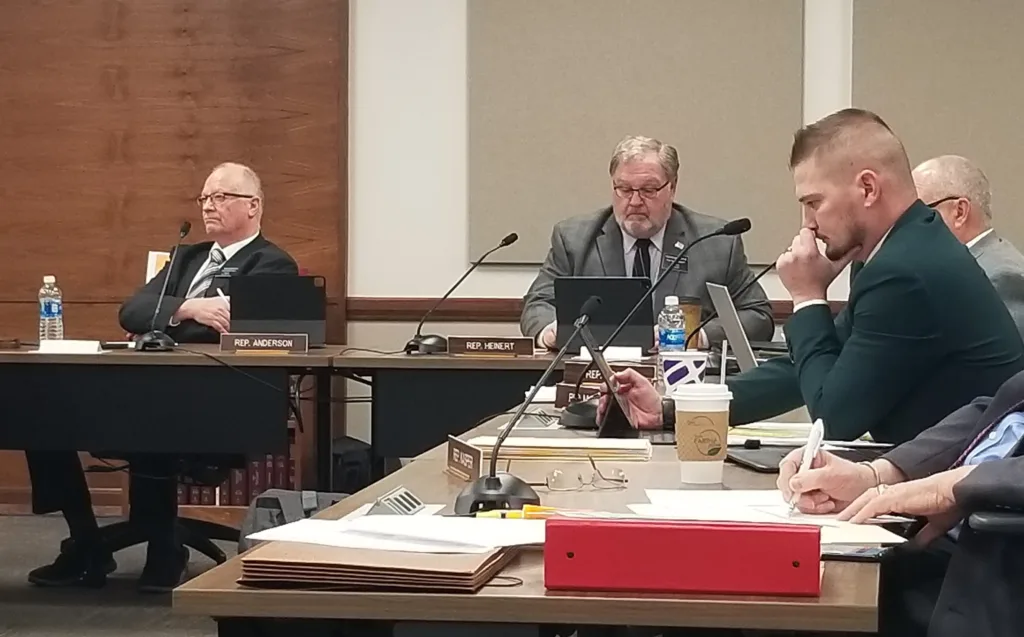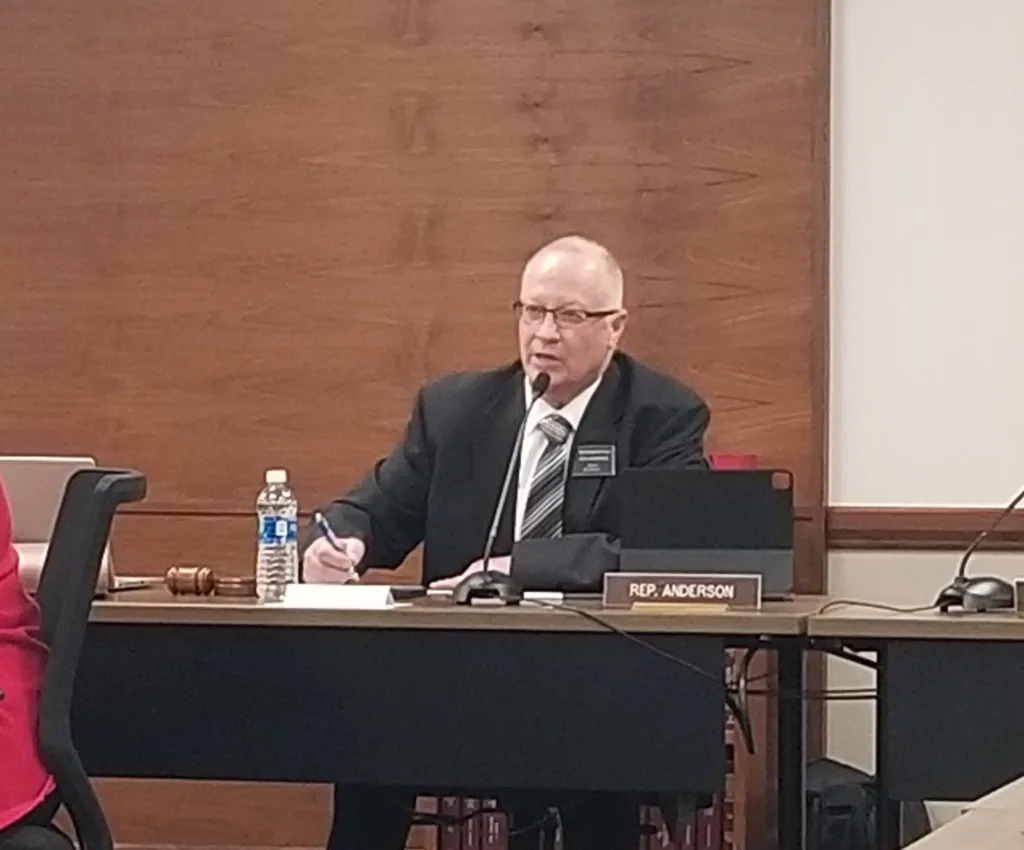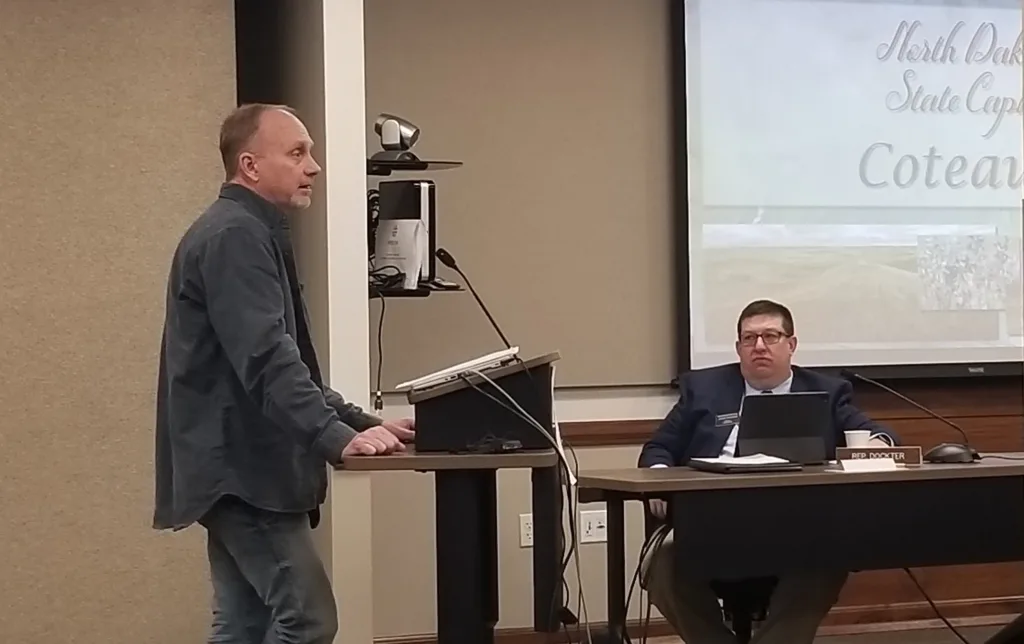

BISMARCK – House Bill 1151 is perhaps the most talked about bill at this year’s session of the North Dakota State Legislature. It also may be shortest.
HB 1151 – Baiting deer for hunting not prohibited.
The department may not issue rules or adopt a policy or practice prohibiting the baiting of deer for lawful hunting.
Written testimony, pro and con, regarding the bill numbers more than 200. The first hearing for HB1151 before the House Energy and Natural Resources Committee was standing room only. People from all across the state came to testify for and against.
The Vice-chairman of the committee, Rep. Dick Anderson, R-Dis. 6, Willow City, said he had never experienced so much reaction to a hunting bill. Anderson has been in the legislature since 2011.

“The room was full and I appreciate that because that’s the only way you get the information you need to make a decision,” said Anderson at the conclusion of more than two hours of testimony this past Friday.
The North Dakota Game and Fish Department has imposed baiting bans in 20 of the state’s 38 deer gun hunting units in an effort to curtail the spread of chronic wasting disease, or CWD. The neurological disease is transferred from deer to deer and is always fatal. Game and Fish maintains baiting deer, the act of putting bait on the ground such as corn to attract deer within close shooting range, adds to the problem.
Those who support HB1151 say deer congregate naturally and baiting is a small part of the problem, or none at all.
“It’s critical to stop transmission as early as possible,” testified Dr. Charlie Bahnson, NDGF veterinarian. “Our first goal is to prevent the disease, then have the lowest presence possible. Virtually no animals with CWD in the wild survive past two years. We’re talking about a population decline, fewer mature animals to hunt, and fewer licenses.”
“Game and Fish is entrusted with the responsibility of managing wildlife for the public good,” testified Casey Anderson, NDGF wildlife division chief. “This bill seeks to remove a department tool to benefit a healthy deer herd for the benefit of all North Dakotan’s. The persistence of this disease in the environment tells us time is of the essence.”
D.J. Randolph, Velva, was among those who testified in favor of HB1151. Randolph is a volunteer with Prairie Grit, an organization that promotes hunts for any person who is mobility challenged.

“We have to do everything we can to get the deer to come to us,” Randolph told the committee. “If you are not able bodied you can’t get to the best places to hunt.”
Committee Chairman Todd Porter, R-Dis. 34, Mandan, asked Randolph who do you think is going to manage the health of the deer herd and livestock if Game and Fish can’t?”
“I don’t want to speak on something I don’t understand,” responded Randolph. “But you can feed big game and bait for turkeys. There’s already deer nose to nose is a lot of other situations.”
The majority of written testimony supplied to the committee is in favor of HB1151. Some cite freedoms to do as they wish. Others say it makes no sense to take away from Game and Fish a tool to manage wildlife.
“Nobody likes the idea of more hunting regulations,” said Bahnson. “CWD conversation is not fun, but it can’t be ignored. We make no claims we’ll stop the disease in its tracks. We're doing everything we can to protect against it.
Rep. Anderson was named chairman of a sub-committee to study HB1151 and provide a recommendation to the whole House Energy and Natural Resources Committee.
“The whole answer to this would be to solve the problem of CWD, more than anything,” said Anderson. “Maybe there’s a possibility for a fix for CWD. We just want to get it right and we have the time to do it.”
Anderson estimated further evaluation of the bill will take “two or three weeks” before a do or don’t pass recommendation would be made to the entire committee.
“Then the committee will vote on it and it will go to the House floor,” said Anderson.